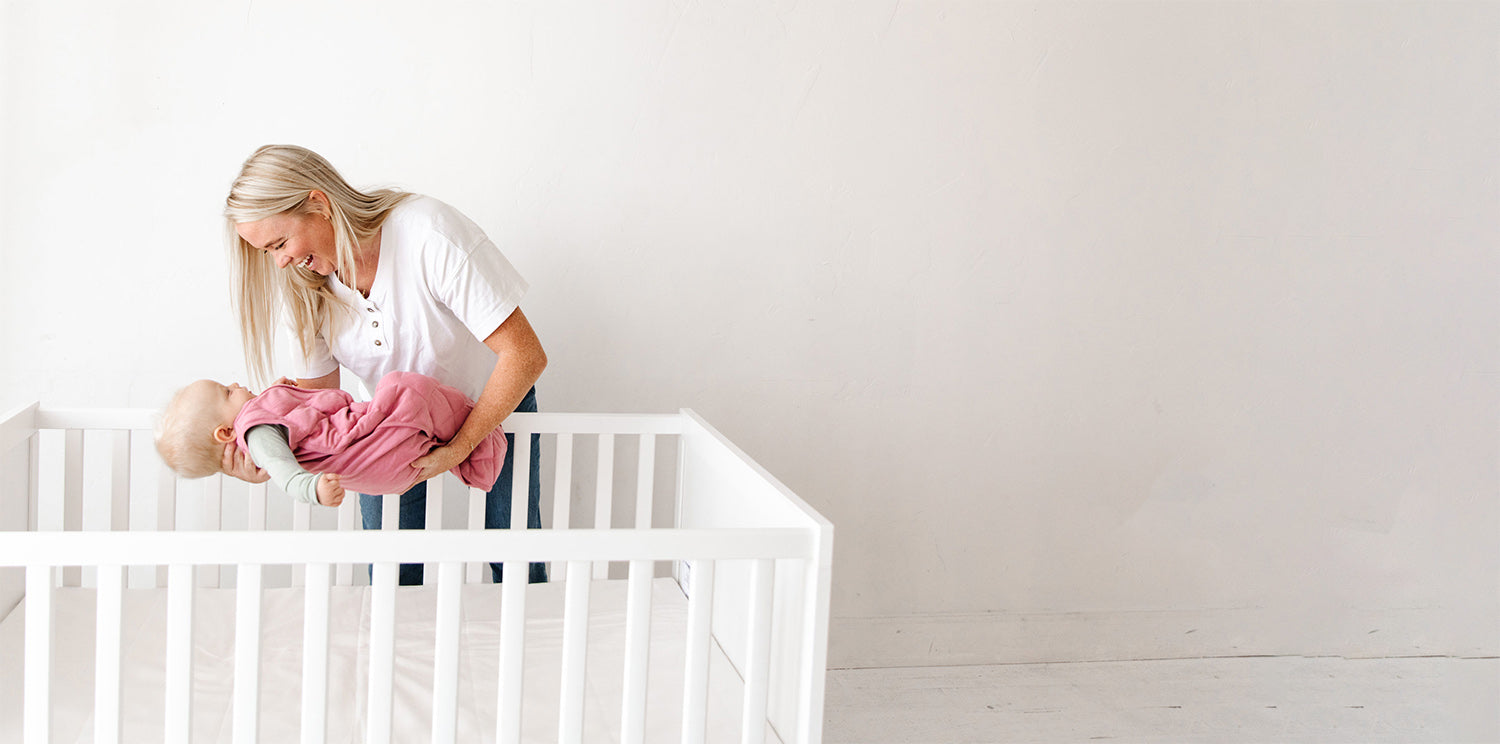Babies cry.....that’s human nature. That’s their way to communicate with us. Whether it’s an expression of discomfort, being hungry, need to be changed or a desire to be soothed, there are many normal reasons why a baby might cry. There are also many times when a baby will cry when there is NOT a problem.
Consider this: According to a 2010 study published by the National Institute of Health, roughly 50 percent of “typically developing infants” sleep for eight hours at a stretch at five months of age.
Self soothing is a very important developmental milestone for babies to reach. But, not all babies reach this point for awhile, and us, as parents, try many ways to soothe our child. Whether it’s swaddling, rocking, pacifier, thumb sucking, or soft music, there are many ways to try to calm your crying infant.
Here are 5 sleep tips that can help your baby sleep...
1) It’s never too early to start a bedtime routine with your baby. The sooner you establish a bedtime routine, the better. In fact, most babies will be receptive to a schedule around 6-8 weeks. Bedtime routines calm your child and prepare them for a good night’s sleep, which is vital to both yours and the baby’s happiness in the morning. Like adults, babies need a bedtime routine to simply unwind for the day. It is difficult for anyone to fall asleep after a busy day without some time to calm down. Starting a bedtime ritual while your little one is a baby will not only make bedtime easier now but will also help as the baby transitions into childhood. The bedtime routine will become consistent and predictable for them, which is teaching them good habits. Some examples of bedtime routine can be bath time, reading stories, listening to music and being swaddled.
2) All babies are born with a potent startle reflex, called the Moro reflex. This reflex can be a consistent catalyst for waking up. For lots of babies, swaddling is a very effective antidote to the startle reflex; it helps them to remain asleep. There are all sorts of swaddling blankets on the market. From my experience, I recommend the Dreamland Baby weighted sleep sacks and swaddles. The gentle weight naturally reduces stress and increases relaxation through deep pressure stimulation to give the baby feeling of security and comfort, just like they were being held. All 3 of my daughters slept through the night within the first month of life, which I strongly feel swaddling played a huge role in that accomplishment.
3) Getting on a good feeding schedule can sometimes help with sleeping. Babies will be feeding more on demand in the early stages of life, which is needed for many reasons. As they get older, they might be eating every 2-4 hours. The more consistent we try to become with feeding, the greater likelihood that child will sleep better through the night.
4) Since 1994, when the National Institute of Child Health and Human Development launched the “Back to Sleep” campaign; which recommends that babies sleep on their backs, rather than on their stomach; the rate of sudden infant death syndrome (SIDS) in the United States decreased 50 percent. Pacifiers and ceiling fans have also proven effective against SIDS.
5) It is now recommended that babies sleep in their parents room for the first year of life. That doesn’t mean sleeping in their parents bed. Co sleeping is not recommended and in fact can be dangerous. Sleeping close by their parents in a bassinet or crib is more safe. It is easier when the baby is in your room to help soothe or feed them, instead of traveling into another room.
Dr. Jonathan Jassey is an AAP Board Certified Pediatrician and founder of Concierge Pediatrics, the first practice of its kind on Long Island, NY. He is the co-author of The Newborn Sleep Book and has received the Patients' Choice Award for three consecutive years and the Compassionate Doctor Recognition Award.


Share:
What Are The Best TOG Sleep Sacks Rating For Your Baby?
First Time Parent Tips: Sleep Tips For New Parents